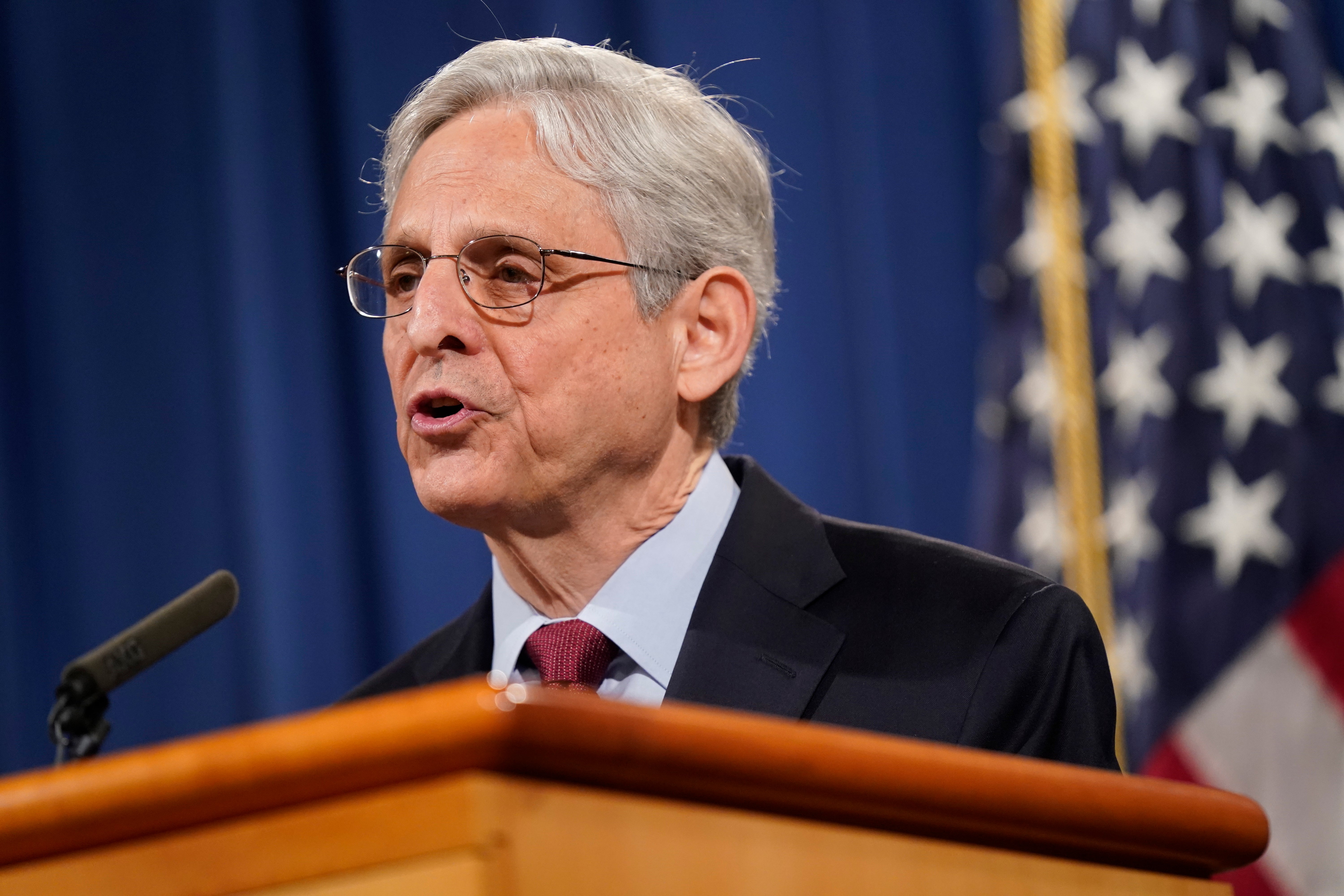Biden’s Justice Department says it will halt Trump practice of secretly seizing reporters’ phone and email records
Attorney General Garland vows to halt secret seizures of reporters’ records

Attorney General Merrick Garland has reined in the Department of Justice’s ability to secretly obtain reporters’ phone and email records, after an outcry about the over-zealous hunt for leakers by the Trump administration.
A memo issued on Monday by the DOJ said it would formally adopt a new policy to restrict “compulsory process to obtain information from, or records of, members of the news media acting within the scope of newsgathering activities”.
It comes after revelations that the previous administration had secretly seized the phone records of reporters from the New York Times, Washington Post and CNN as part of a leak investigation to learn the identities of sources.
In the statement, Mr Garland said his deputy attorney general would “further explain, develop, and codify the policy” to protect the media “in a way that will be enduring”.
President Joe Biden has previously called the practice of obtaining reporters’ records “simply, simply wrong”, and that he would not allow this to happen during his term.
In May, The Washington Post revealed Mr Trump’s DOJ had obtained the records of three of its journalists who had covered Russia’s attempts to interfere with the 2016 election between April and July 2017.
At the time, the Post’s acting executive editor Cameron Barr said: “We are deeply troubled by this use of government power to seek access to the communications of journalists.”
The same month, CNN said the department had obtained records of its Pentagon correspondent, Barbara Starr.
In June, the Times announced the records of four reporters – Matt Apuzzo, Adam Goldman, Eric Lichtblau and Michael S Schmidt – were seized over a period of four months in 2017.
The newspaper had been notified by the DOJ that the records had been caught in its dragnet as it probed “a criminal investigation into the unauthorised disclosure of classified information”.
The Times’ executive editor Dean Baquet said at the time the seizure of journalists’ phone records “profoundly undermines press freedom” and “threatens to silence the sources we depend on to provide the public with essential information about what the government is doing”.
Previously, the Justice Department was able to pursue reporters’ communications with sources if it suspected they were receiving unauthorized classified information.
This approach was heavily criticized by Congress and free speech advocates, who argued it could be used to stifle legitimate newsgathering of matters of public interest.
The DOJ can now only seek reporters’ records if they fall under suspicion of engaging in criminal acts outside of their journalistic work, if they are suspected of working as an agent for a foreign power, or if there is imminent risk of death or serious harm.
In the memo, Mr Garland said a “free and independent press is vital to the functioning of our democracy”.
During his four years in power, Mr Trump repeatedly hit out at unauthorised leaks and was acutely sensitive of any coverage of Russian involvement in his victory in the 2016 presidential election.
Join our commenting forum
Join thought-provoking conversations, follow other Independent readers and see their replies
Comments